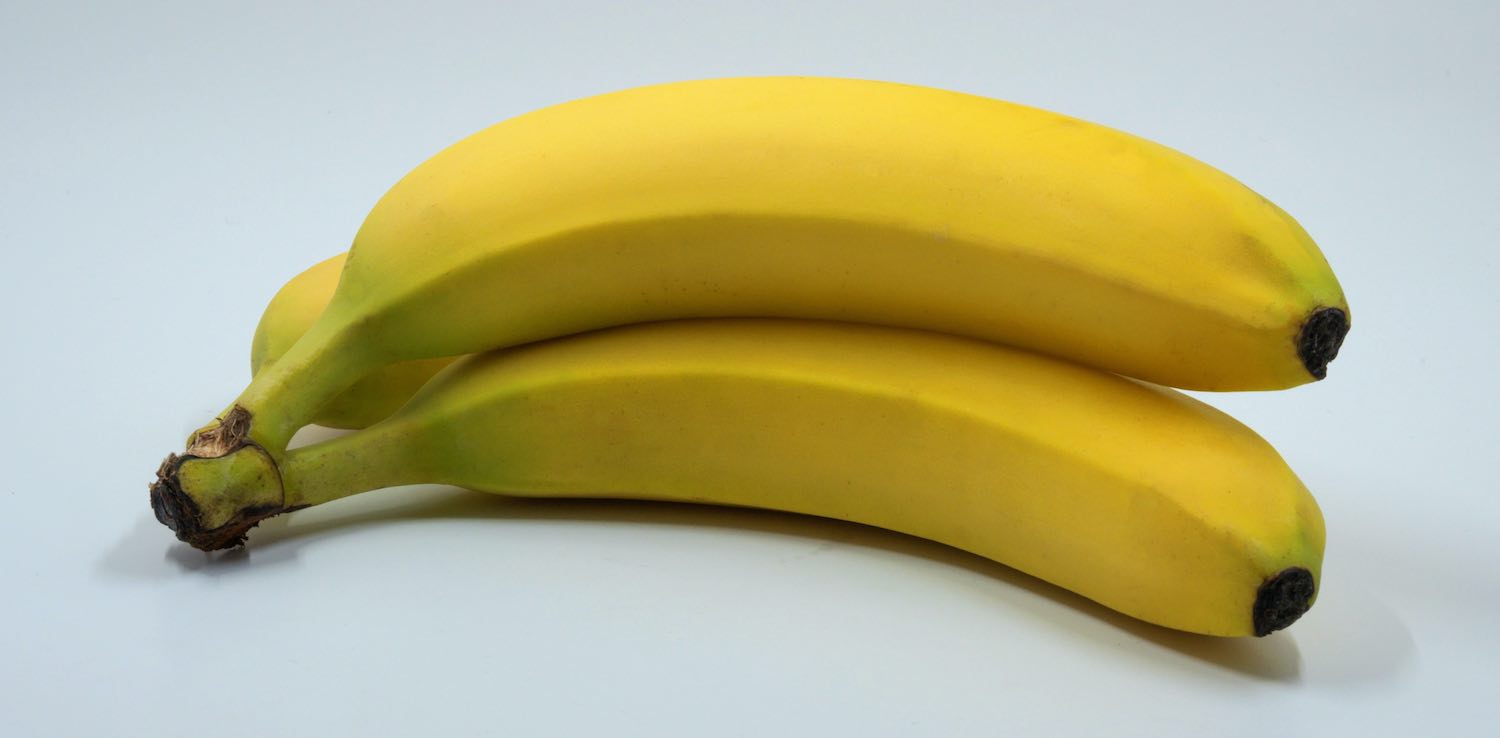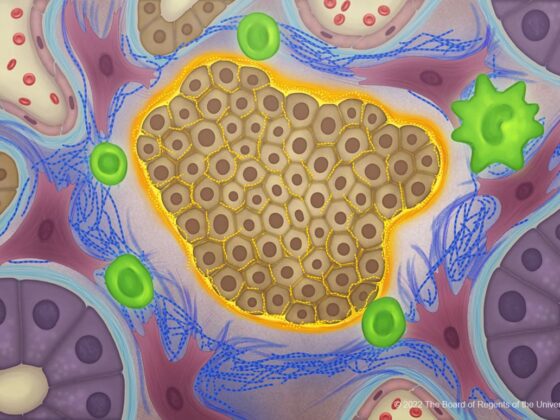Consuming resistant starch (RS), also known as fermentable fibre, reduces the risk of non-colorectal cancers (non-CRCs) by nearly 50% in people with Lynch syndrome. The study, published in Cancer Prevention Research, 25 July, found that while resistant starch significantly reduced upper GI cancers (e.g., gastric, biliary tract, pancreatic and duodenal cancers) in comparison to placebo, it had no effect on Lynch syndrome-associated colorectal cancers (CRCs).
“Resistant starch can be taken as a powder supplement and is found naturally in peas, beans, oats and other starch foods. The dose used in the trial is equivalent to eating a daily banana; before they become too ripe and soft,” says John Mathers, professor of Human Nutrition at Newcastle University, and corresponding author for the study.
The CAPP2 trial, involving 937 patients recruited from 43 international centres, was initiated in 1999 to investigate the long-term effects of aspirin and resistant starch on cancer incidence in people with Lynch syndrome. Lynch syndrome is due to germline pathogenic variants in one of the DNA mismatch repair (MMR) genes that increase the risk of CRC, as well as cancers of the endometrium, ovary, stomach, small intestine, pancreas, bile duct, urinary tract, brain and skin.
In a 2×2 factorial design, participants, who had a mean age of 45 years at study entry, were randomised to one of four groups: aspirin + resistant starch, aspirin placebo + resistant starch, aspirin + resistance starch placebo or aspirin placebo + resistant starch placebo. The resistant starch dose was 30g daily, with waxy starch used as the placebo. The primary outcome looked at CRC prevention, while the secondary outcomes explored non-CRC prevention.
An earlier analysis of CAPP2, published in The Lancet in 2020, showed that patients with Lynch syndrome who received aspirin had a significantly reduced risk of developing CRC compared with those taking placebo (HR 0.65; 95% CI 0.43-0.97, P=0.035 for the ITT analysis).
The first analysis of the resistant starch component of the study, published in Lancet Oncology in 2012, which took place when participants were on average 52.7 months post intervention, revealed no difference for overall cancer rates between those who had taken resistant starch and those who had taken placebo.
Results of the intention to treat (ITT) analysis, taking place when participants were at least 10 years post intervention, found that 5.8% of participants randomised to resistant starch (n=27) had non CRC Lynch syndrome cancers compared with 10.5% (n=48) randomised to placebo (HR 0.54, 95% CI 0.33-0.86, P=0.010). In the per-protocol analysis (restricted to participants on treatment for ≥2 years) the effect was greater (HR 0.42, 95% CI 0.22-0.81, P=0.0090). For upper GI cancers (stomach, duodenal, bile duct and pancreatic) the effects even greater, with five upper GI cancers detected in five participants randomised to RS versus 21 cancers in 17 participants in the placebo group.
However, for the CRC ITT analysis there was no difference between groups – 52 CRCs occurred in participants taking resistant starch versus 53 in participants taking placebo (HR 0.92; 95% CI 0.62-1.34, P=0.63). Similarly, the per-protocol analysis found no effect for resistant starch on CRC incidence (HR 1.10, 95% CI 0.69-1.76, P=0.69).
The team explored the possibility for potential interactions between aspirin and resistant starch and found none.
“Our unexpected finding has important implications for the management for patients with Lynch syndrome because surveillance for such cancers is challenging and survival after upper GI cancer diagnosis is much lower than for other Lynch syndrome cancers,” write the authors. For patients with Lynch syndrome cancers diagnosed under 65 years, they add, five-year survival is 0% for pancreatic cancer, 29% for bile duct and gall bladder cancers, 61% for stomach cancers and 67% for duodenal cancers, compared with 88% for colon and 93% for endometrial cancers.
Speaking to Cancerworld, Mathers says, “Our current hypothesis is that resistant starch changed the metabolism of the gut microbiome and, in particular, reduced the conversion of primary bile acids to secondary bile acids. This is important because some secondary bile acids damage DNA (including DNA in stem cells) and DNA damage is fundamental for cancer development. Through the normal entero-hepatic cycle we hypothesise that this will have led to less exposure of upper GI tissues to damage from secondary bile acids.”
This secondary bile acid theory, he adds, fits with observed time delays, since there is likely to be a substantial interval between DNA damage in stem cells and the appearance of malignant cancers. At present, the investigators do not have a good hypothesis to explain the lack of effect for resistant starch on CRCs.
Since upper GI cancers occur in the general population, as well as people with Lynch syndrome, Mathers believes there is good reason to believe that their findings will also apply to general populations.
“Although we are very excited by our findings that resistant starch reduced non-CRC cancers by about 50%, this was a secondary outcome of the study and it will be important to confirm the finding in further studies,” says Mathers. There is a lot of work to do in understanding the molecular mechanisms through which resistant starch exerts its protective effects. “In addition, to interactions with the gut microbiome resulting in reduced production of secondary bile acids, we are also interested in exploring whether resistant starch via the gut microbiome might alter inflammatory and immune responses that enhance immunosurveillance,” he says.












